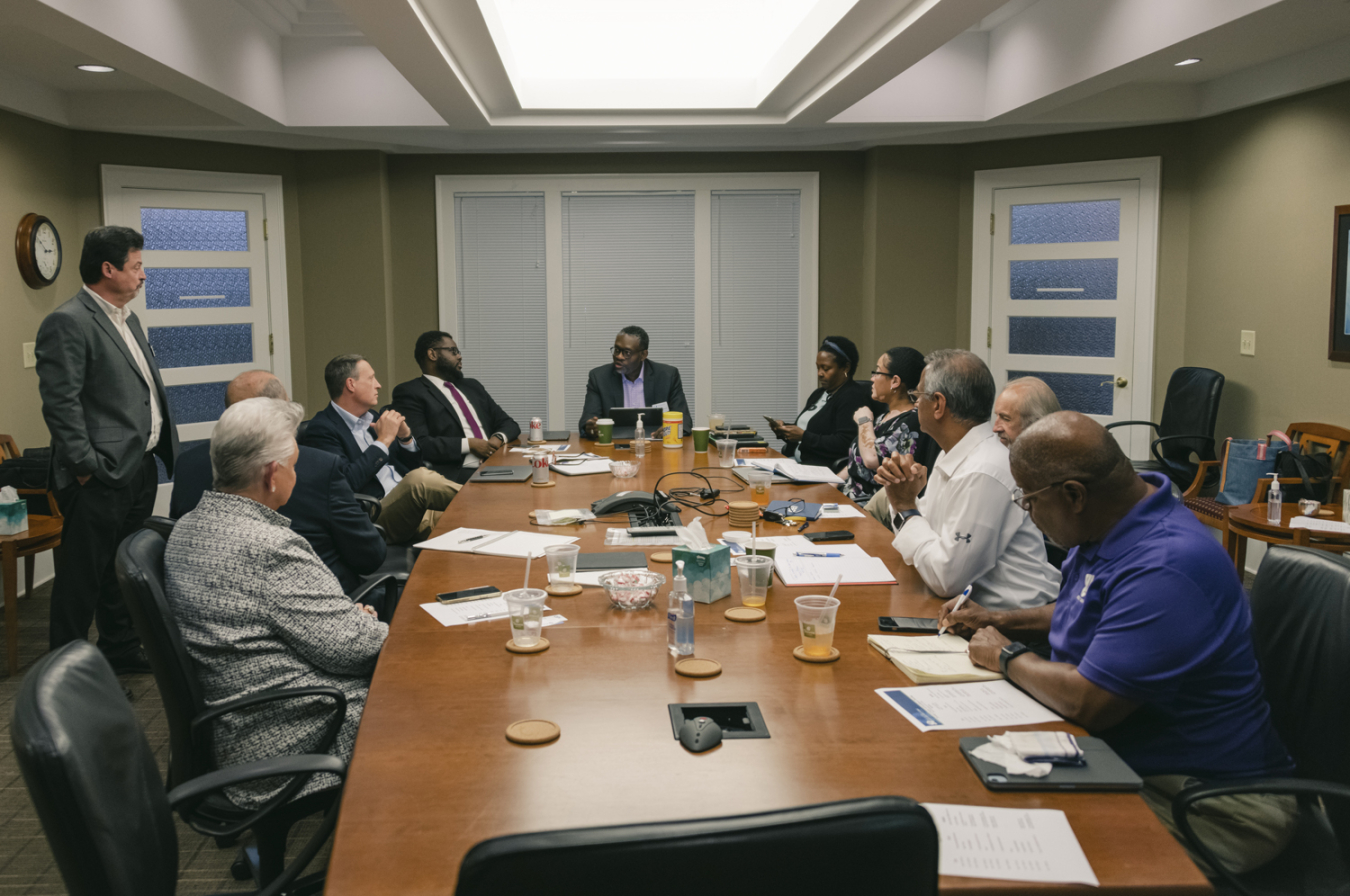
During a recent Mentor-Protégé Center of Excellence Day, participants met to share knowledge and experience. To further nurture small businesses, Savannah River Nuclear Solutions has increased its support for its mentor-protégé program from $415,000 to $19.5 million annually.
AIKEN, S.C. – An EM contractor at the Savannah River Site (SRS) continues to find ways to improve its small business mentor-protégé program, now in its sixth year.
Savannah River Nuclear Solutions (SRNS) recently held its Mentor-Protégé Center of Excellence Day, where participants suggested improvements for the program, which has received a big financial boost from SRNS, from $415,000 to $19.5 million annually.
The SRNS Mentor-Protégé Program is a DOE initiative designed to help small businesses enhance their capabilities as subcontractors across the DOE complex. The SRNS program includes the Mentor-Protégé Center of Excellence, where mentor companies share best practices and lessons learned.
Since its inception in 2016, the SRNS Mentor-Protégé Program has grown as it supports multiple companies at any one time. Four protégé companies currently participate in the program, with a fifth being evaluated.
As they work to increase participation in the program at SRS, SRNS officials also share their knowledge of mentoring protégé companies with other EM sites across the DOE complex.
“Mentor-protégé programs are a tremendous asset for small businesses and participating DOE contractors, providing valuable insight to ensure success at SRS and the greater DOE complex,” said James Toler, SRNS executive vice president, National Nuclear Security Administration Capital Projects. “These programs allow us to actively engage with these small and often new companies, teach them best practices and show them how to provide high-value products and services that support our missions.”
Supporting local small businesses has a significant economic “ripple effect” within the communities surrounding SRS.
The protégé companies often hire local residents for SRS contracts, and they use nearby commercial vendors for a large percentage of their procurement needs.
Economic impact studies have shown that when SRS organizations spend a dollar, it returns two dollars to the five counties surrounding SRS.
When companies in the program receive their mentor-protégé agreements, they can obtain subcontracts to conduct work at other DOE sites in addition to SRS. The agreement simplifies the procurement process, saving federal procurement dollars through streamlined purchasing methods.
Mentor-protégé programs are also designed to encourage large prime contractors to provide developmental assistance to small businesses, veteran-owned small businesses, service-disabled veteran-owned small businesses, historically underutilized business zone (HUBZone) small businesses, small-disadvantaged businesses and women-owned small businesses.
To receive the latest news and updates about the Office of Environmental Management, submit your e-mail address.
